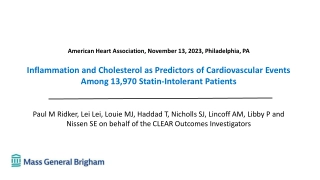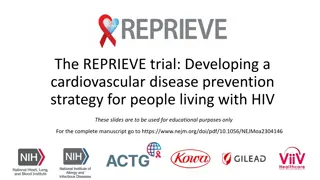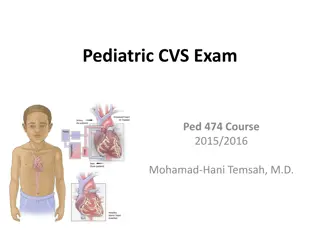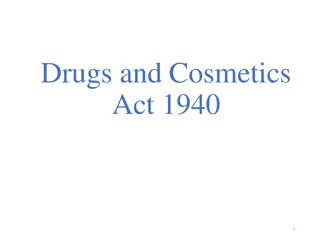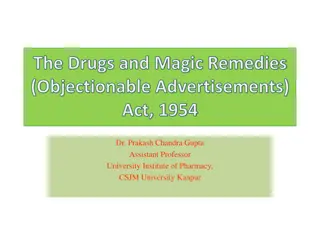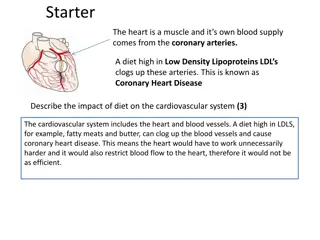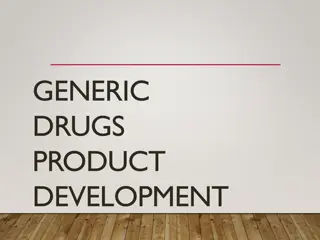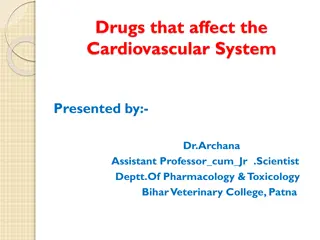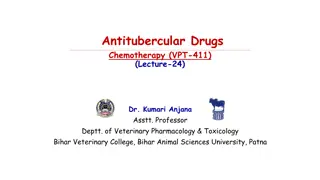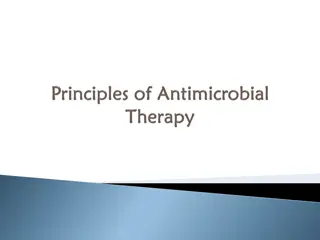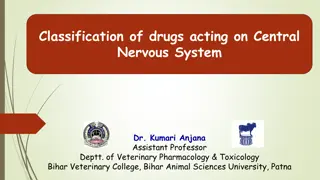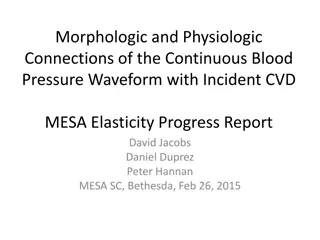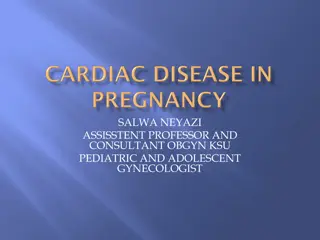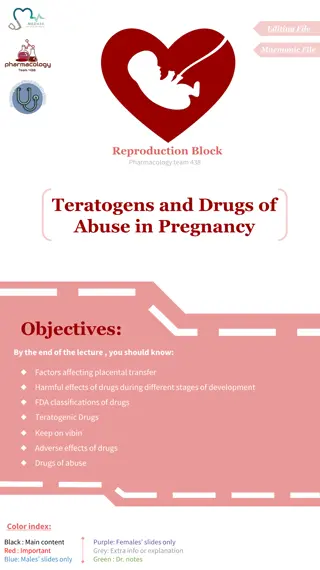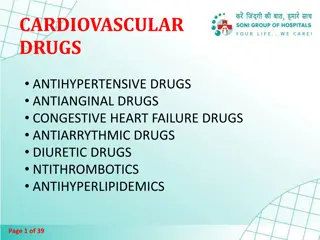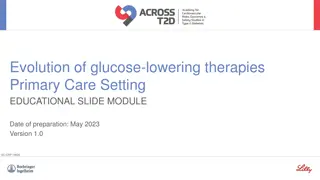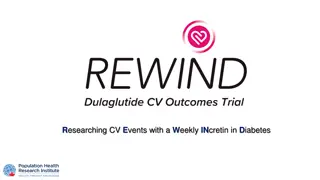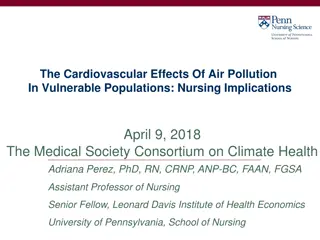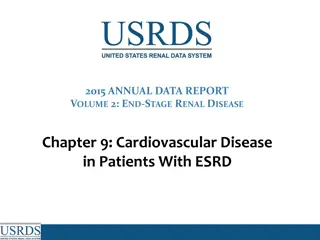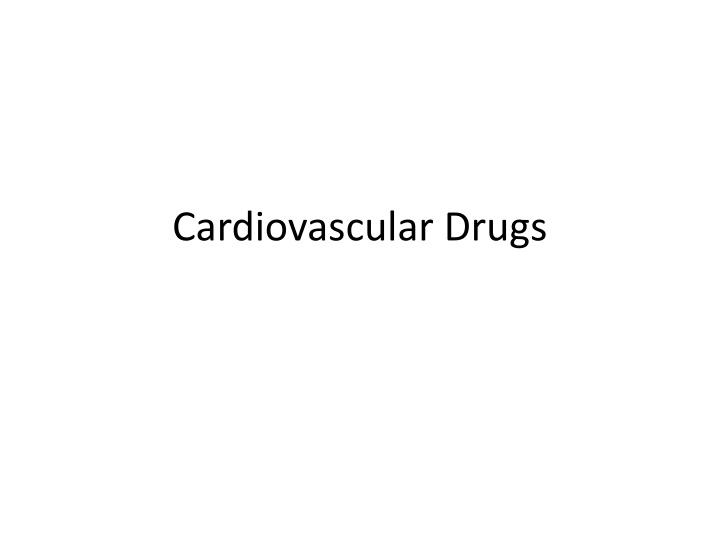
Blood Pressure: Essential Information on Cardiovascular Health
Explore the essential aspects of cardiovascular health related to blood pressure, systolic and diastolic pressure, hypertension, risk factors, and types of hypertension such as essential and secondary. Discover the importance of managing blood pressure for overall well-being.
Download Presentation

Please find below an Image/Link to download the presentation.
The content on the website is provided AS IS for your information and personal use only. It may not be sold, licensed, or shared on other websites without obtaining consent from the author. If you encounter any issues during the download, it is possible that the publisher has removed the file from their server.
You are allowed to download the files provided on this website for personal or commercial use, subject to the condition that they are used lawfully. All files are the property of their respective owners.
The content on the website is provided AS IS for your information and personal use only. It may not be sold, licensed, or shared on other websites without obtaining consent from the author.
E N D
Presentation Transcript
As blood is pumped through the arteries, it creates pressure within the wall of the arteries As the heart contracts, this increased pressure is called the systolic pressure
As the heart relaxes and fills, this decreased pressure is called the diastolic pressure
Blood Pressure Blood pressure is written as a fraction of systolic over diastolic pressure in mmHg(mercury) Normal is 120/80 mmHg
Blood Pressure Blood pressure is VITAL to life A blood pressure of zero is a sign of death Blood pressure is a VITAL sign
Hypertension Is High Blood Pressure HTN
Hypertension Is measured by consistent elevation in blood pressure, either Systolic 140mmHg Diastolic 90mmHg
Hypertension Long standing, uncontrolled HTN damages blood vessels resulting in many types of organ damage
Essential Hypertension Essential HTN is the most common form of HTN Cause of essential HTN is unknown
Essential Hypertension has many risk factors: Family history of HTN Sex Race Salt Stress Obesity, lack of exercise Smoking
Secondary HTN Unlike essential HTN, secondary HTN has a specific cause for the elevated blood pressure
Secondary HTN Kidney Disease Pheochromocytoma a type of tumor that makes too much epinephrine or too much catecholamines Cushing s Disease Pregnancy Vascular Anomalies Neurologic Disease
Symptoms of HTN HTN usually has NO symptoms It is usually detected on a routine visit to a medical clinic
HTN usually has NO symptoms This is why it is so difficult to convince people to take medication for HTN
Symptoms of HTN HTN can cause many symptoms Headache and visual changes, especially during stress are common early symptoms
Symptoms of HTN When HTN is severe enough to cause acute visual, neurologic, or any other organ damage this is called MALIGNANT HYPERTENSION
HTN damages blood vessels Long term sustained hypertension damages blood vessels Blood vessels exposed to high blood pressures become thickened and hardened, making them less flexible
Arteriosclerosis Blood vessels exposed to high blood pressures become thickened and hardened, making them less flexible
HTN damages blood vessels Fatty deposits can form on the arteries call plaques, which cause the artery to narrow and become blocked This is called Atherosclerosis
Know the difference between: Arteriosclerosis Atherosclerosis
Infarction When narrow arteries become blocked and blood supply to an organ is stopped, organ damage results This damage is called infarction
HTN causes brain damage HTN is a major cause of stroke - brain attack - cerebrovascular accident (CVA) - cerebral infarction - apoplexy
Aneurysm With high blood pressure, a weakening of the arterial wall may balloon out (aneurysm) and burst causing hemorrhage (bleeding) and even death
Aneurysm Although aneurysm can occur on any artery, the two most common places for aneurysm are: - Brain cerebrovascular aneurysm - Aorta abdominal aortic aneurysm
HTN damages the eyes Because HTN damages blood vessels, HTN damages the blood supply to the eyes, and can lead to blindness
HTN damages the kidneys Because HTN damages the blood vessels, HTN damages the kidneys, this is called nephrosclerosis, and can lead to kidney failure
HTN damages the heart Because HTN damages the blood vessels, HTN damages the heart by infarction, hypertrophy or cardiomyopathy
The kidneys help regulate blood pressure The kidneys play an important role in the long- term regulation of blood pressure
Immediate Control Parasympathetic Nervous System Sympathetic Nervous System/Adrenergic NS
Long Term Control Kidneys
Kidneys and Blood Pressure Kidneys help regulate the balance of salt and water in the body Kidneys excrete water soluble waste substances, salt and water
Kidneys are Filters The kidneys contain millions of microscopic filtering units, called nephrons which are the working components of the kidneys
Kidneys are Filters Many substances cannot pass through the filter and remain in the blood Many substances pass through the filters (like glucose) but are reabsorbed back into the blood
Kidneys are Filters Many substances pass through the filters and are excreted into the urine
Kidneys regulate blood volume When blood volume decreases, kidneys will retain salt and water When blood volume increases, kidneys will excrete salt and water
Renal Hormones and Volume Control Blood volume is monitored by the kidneys and continually adjust water and salt levels to help maintain consistent blood pressure
Renal Hormones and Volume Control The blood vessels supplying the nephrons contain special cells that detect blood pressure
Renal Hormones and Volume Control If blood pressure falls below a set point, a renal hormone called Renin is secreted into the blood stream

